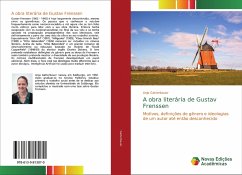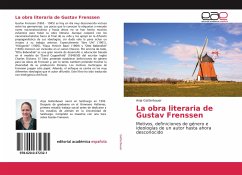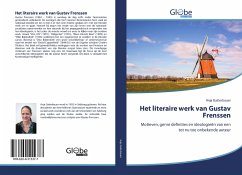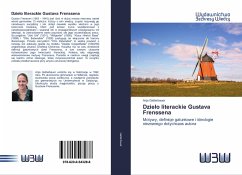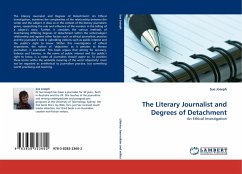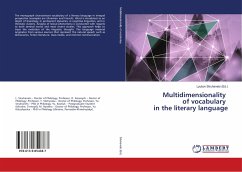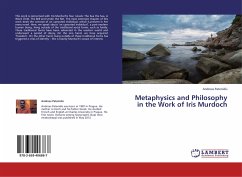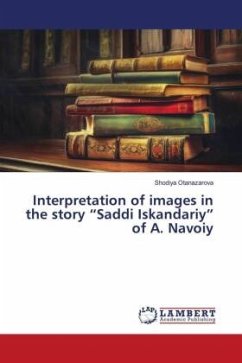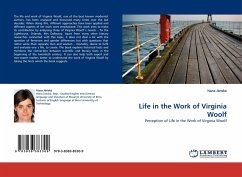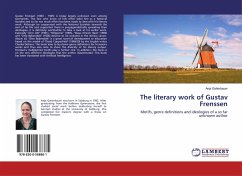
The literary work of Gustav Frenssen
Motifs, genre definitions and ideologies of a so far unknown author
Versandkostenfrei!
Versandfertig in 6-10 Tagen
36,99 €
inkl. MwSt.

PAYBACK Punkte
18 °P sammeln!
Gustav Frenssen (1863 - 1945) is today largely unknown even among Germanists. The few who know of him often label him as a National Socialist and so far not much effort has been made to deal with his literary work. Although he cooperated with the National Socialists towards the end of his life and supported them in propagandistically spreading their ideologies, it is definitely worthwhile to take a look at his earlier work. Especially "Jörn Uhl" (1901), "Hilligenlei" (1905), "Klaus Hinrich Baas" (1909) and "Otto Babendiek" (1926) deserve to be included in the literary canon. Above all, "Otto ...
Gustav Frenssen (1863 - 1945) is today largely unknown even among Germanists. The few who know of him often label him as a National Socialist and so far not much effort has been made to deal with his literary work. Although he cooperated with the National Socialists towards the end of his life and supported them in propagandistically spreading their ideologies, it is definitely worthwhile to take a look at his earlier work. Especially "Jörn Uhl" (1901), "Hilligenlei" (1905), "Klaus Hinrich Baas" (1909) and "Otto Babendiek" (1926) deserve to be included in the literary canon. Above all, "Otto Babendiek" is a great novel of development or education based on the model of "David Copperfield" (1849/50) by the English writer Charles Dickens. The book aims to lay down genre definitions for Frenssen's works and thus also aims to show the diversity of his literary output. Frenssen's multilayered motifs play a further role. In addition, the focus is on the very different ideologies that the author disseminated. This book has been translated with Artificial Intelligence.



